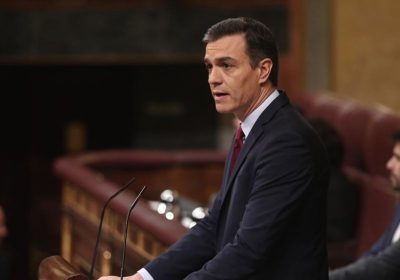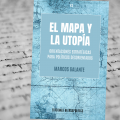My Lord Derby, my lords, ladies, and gentlemen: I am not a stranger to this audience – (hear, hear) – nor do I reÂquire any introduction, I hope, of an elaborate kind, either to my friends in Manchester or to the larger national gathering which is collected within these walls, and which represents every Conservative AssoÂciation in England. (Cheers.) It was to have been my happy fortune last year to have addressed in another great industrial centre a meeting which, if not as great and as enthusiastic as this – for I imagine that would be hard to find out of Lancashire and out of Manchester – (hear, hear) – at all events a gathering collected upon similar lines, and to deal with great national questions, but I was prevented by illness. Happily for myself, at all events, no such accident has intervened today – (hear, hear) – to prevent me speakÂing to you upon a subject which, if not as exciting as the war, which would have been my topic had I spoken this time 12 months – (hear, hear) – is, I firmly and conscientiously believe, not less intimately bound up with our greatness as a nation and our Imperial position in the world than even was that mighty struggle which we have now brought happily to a successful conclusion. (Cheers)
Calumnies against the Bill
Had I spoken to this audience last year – at all events if I had had to deal with the calumnies and misrepresentations to which the war gave birth – I should have had 9-tenths of the nation, 99-hundredths of the nation, 999-thousandths of the nation on my side. And why? Because the subject was underÂstood. Because the voice of the calumniator, though not silent, was crushed, was crushed by the knowledge which the whole country had of the true issues at stake. I have perhaps therefore tonight a more difficult and a more responsible task before me, because I have to recognise that, up to the present time at all events, the voice of the calumniator has been too long uncontradicted, and that it is full time that this country should show that it is capable of distinguishing truth from falsehood, and that it is not to be hoodwinked even by the most elaborate and ingenious travesties of the truth. It is a melancholy reflection that the misstatements which have been sown broadcast for so long should have been readily accepted even by those of whom we might have expected and hoped better things. I received a letter not many days ago from a correspondent whose bona fides was obvious. He said to me, ‘Absurd as it may seem to you, I do implore you when you speak at Manchester to contradict these two falsehoods which are believed here, even by many of the best of the artisan and working classes.’ And what do you think those misstatements were which I was gravely asked to contradict? One of them was that the Education Bill which is now before Parliament, and which is absorbing at the present time the whole political attention of the country, did away with Board schools; and the second misstatement was that in the rate-supported schools of the future denominational teaching would be required by law. Now, if these two things can be believed about the Education Bill, anything can be believed about it. They are not only untrue, they are not only falsehoods of the blackest character, but they are falsehoods the falsity of which could be seen in five minutes by anybody who had taken the trouble to read through the Bill. And yet such is the courage – if I am to use the most comÂplimentary term at my disposal – such is the courage of our opponents, so confidently do they count either upon the ignorance or upon the indifference of our countrymen, that this kind of lie can find persons shameless enough to propagate it, and others credulous enough to believe it.
The reasons for introducing the Bill
Now there is one preliminary question which I often find asked by those who have but slightly followed this controversy. They say to me: Why did the Unionist Government ever start this unhappy dispute? Why have you, by bringing forward an Education Bill, filled the land with these insensate clamours from north to south, and from east to west? Why have you disturbed the social peace which might have lasted, had you not taken the course you thought fit, for an indefinite period? It is a perfectly fair question. I will give it a direct and, I hope, an intelligible answer. The answer is this, that the existing educational system of this country is chaotic, is ineffectual, is utterly behind the age, makes us the laughing-stock of every advanced nation in Europe and America, puts us behind not only our American cousins but the German and the Frenchman and the Italian, and that it was not consistent with the duty of an English Government, of a British Government, to allow that state of things longer to continue without an adequate remedy.
The evils of the present system
What were, what are the evils under which, educationally speaking, this great country at the present groans? I have got so much to say to you on the subject of education that I am only going to touch on the heads, the main points which I wish you to bear in mind. In the first place, then, from a local government point of view, we have the absurdity of two rating authorities dealing with education, both with power to draw upon the local resources. But the local government point of view I quite admit is not the worst point of view. From the educational point of view, to begin at the top – or to begin, at all events, if not at the top, at the point immediately underneath our University system – you have the great county councils and borough councils of this country, corporations like the great Corporation of ManÂchester, building technical schools like that which I hope to have the honour of opening tomorrow, but without the smallest power so to arrange the education in their district that those who are expected to profit by these great technical schools shall come to them with adequate preparation. The Corporation of Manchester at an enormous cost has built this great institution, the glory not only of Manchester but of the whole of Lancashire. And yet the Corporation of Manchester at this moment is incapable of dealing with secondary education, with higher elementary education, and with elementary education which, if they be not all treated as one organic whole, make all this expenditure vain, empty, and useless, a cost to the ratepayers, but no benefit to the industrial community.
Many authorities: no unity or connection
To go a step lower, there is at this moment in England no public authority which is capable of supplying secondary education in its true sense, and when you come to that higher primary education which has been illegally carried on by the School Boards, though I heartily sympathise with the objects they had in view, when you come to deal with that you have under the existing system, between the Corporation on one side and the School Board on the other, inevitable overlapping, unless you come, as the public spirit and common sense of Manchester has been able to come, to some kind of arrangeÂment between those bodies whom the State has thrown down to fight it out as best they can in their midst. And when, leaving higher elementary education, I come to that elementary education which is the necessity of every class in the community, and to which we justly require every man in the land from the highest to the lowest to subject his children, what do we find? Under the existing system we find Board schools which are in no relation either to the voluntary schools on the one side or to the secondary schools and higher technical schools on the other, and we find the voluntary schools, educating, remember, more than half of the children of this country, we find them in many cases starved for want of funds and incapÂable of carrying out – properly, at all events – the great duties entrusted to them by the community.
The duty of the Government
Now, I say that that is a system which this Government, if it was to be worthy of its name, could not tolerate. I say that is a system we are bound to reform, and therefore, when I am asked why the Government have disturbed the serenity of the social calm which existed before this Bill was introduced, I say we did it in obedience to the greatest mandate which a Government can have, in obedience to the duty which devolves upon the whole adult community, that the nation should see that the children of the nation are brought up to carry on and, if possible, improve the traditions of their forefathers. I am told that by the course the GovernÂment have adopted we have given a tonic to the Radical party. I do not grudge it them. They want it. But even if they did not want it, I should think we were utterly unworthy of the confidence which the nation has reposed in us, if for mere party and transitory reasons we had refused to deal with this great problem which pressed for solution.
The central principle of the Bill
And what is our solution? I am not going into it in detail, but in substance it is this – that we should put all the branches of education of which I have spoken under the control and supervision of those great public assemblies, the borough councils and the county councils of the country. That is the central principle of the Bill. On that everything else hangs, and I shall have to ask you to remember that fact when I come in a few moments to deal with one of the greatest controversies which this Bill has aroused. We want those great municipal and county authorities to co-ordinate the higher with the lower education, to provide secondary education and higher elementary education without overlapping. We want them – and this is one of the most important things that needs to be done – we require them to train teachers. At present, under our existing system, we find no machinery, no adequate machinery, no tolerable machinery, no machinery that any other country in the world but our own would stand for a moment. We want this municipal and county authority to provide the machinery for training teachers, and we want it to control all the schools withÂout exception, so far as secular education is concerned, in which the children of our people are educated, and to see that, so far as secular education is concerned, they are properly equipped and adequately staffed. Remember, then, that the Bill is an organic whole, which deals with a great and admitted evil. It deals with it on a fixed and intelligible plan, and no amendment ought to be admitted into the Bill which destroys it as an organic whole. Very well. So far I do not say I have a unaniÂmous opinion behind me. Can anybody say that on any subject unanimity is to be expected in this country, and least of all upon the subject of education? But so far I do believe that, if we could eliminate all other points of controversy, the educaÂtionalist of this country would come into line with the GovernÂment.
The religious difficulty
Where, then, is the difficulty? The difficulty, as you know, lies in religion. Our countrymen, by a vast majority, are of opinion – and personally I agree with them – irrespective, I believe, of political party or Church membership, that religion should be taught to the children of this country. Unfortunately, while we are on the whole agreed on that point, we are not, and probably shall never be, agreed as to what religion should be taught to the children of this country.
An ideal system
Now, the ideal system – the system which we would set on foot had we the power to reconstruct society – would be that every parent sh ould find provided for his child a school in which religion should be taught after the manner desired by that parent. That is the ideal system which carries out the principle of ideal justice, but evidently it is not a practicable system. The divisions of religious opinion among us are unhappily so great, and are unhappily of such a character that it is quite impossible that if you are to have compulsory education in the public schools of the country you can so arrange it that every parent should, as a matter of course, find at his doors a school in which religious education is given according to his own particular beliefs.
The next best system
Very well, what is theoretically the next best system? In my judgment the next best system theoretically is probably what I may roughly call the Scottish system, and I do not say so only because I am a Scotsman. In the Scottish system there is absolute freedom given to each locality to give the religious teaching which a majority of that locality think desirable for the various classes of parents in the locality. That, in my belief, is a very good system. It works well in Scotland. It works well in some parts of Scotland where the divisions of religion are of the acutest kind. But I do not think it is practicable in this country for reasons which at this moment it would take too long to enter into, but one of which I will just mention in passing. It is this – that that system cannot be adopted unless you abolish the Cowper-Temple Clause and that, as you all know, is by the great body of Nonconformists in this country valued as a portion of the system of education with which they will never willingly part.
The only possible alternative
Well, if the Scottish system is impracticable, then I venture to say that the only possible alternative in which there is even a semblance of justice is one which, while it permits so-called undenominational teaching in schools entirely supported out of public funds, permits denominational teaching in schools which are not so wholly supported out of public funds. And therefore, in my judgment, any plan is absolutely inadmissible, and ought not to be contemplated by any Government, or passed by any Parliament, or supported by any constituency which destroys as part of that system the voluntary schools of the country. In other words, so long as you choose to maintain the Cowper-Temple Clause in the schools wholly supported out of public funds, so long must you as a matter of simple and elementary justice allow voluntary schools, outside the wholly rate-supported schools, in which denominaÂtional teaching can take place. And when I find – I was going to say our Nonconformist friends, but that is an unfair way of putting it – when I find certain extreme Nonconformist agitators looking forward to what they call a national system of education, and when I discover that that national system of education is one that exactly suits the Nonconformists, but does not suit other people, then I say that that system o » type=»text/javascript»> f education may have many merits, but does not deserve the merit of being called national. You will observe, then, that I am brought as regards secular education to the single authority – that authority being the county council or the borough council – and that as regards religious education in this country we must as part of our system, so long as we maintain the Cowper-Temple Clause, maintain the right to have the children of that party of the nation which desires it taught in voluntary schools. I believe that the conclusion to which I have thus brought you – I hope at not too great length – is one that commends itself to the moderate men of all parties, whether Churchmen, whether Nonconformists, whether Roman Catholics, or whether belonging to any of the other sects, or to no sects into which the community is divided.
Two schools of thought
Where then, you will ask me, is the difficulty? The difficulty largely arises because those who hold the general theory of education which I have ventured to propound are divided, and must naturally be divided, into two schools of thought – those, on the one hand, who, agreeing that we must retain our voluntary and denominational schools, are more preoccupied in seeing that there should be adequate popular control for those schools; and those, on the other hand, who agree that there should be adequate popular control, but who are more preoccupied on their side that the denominational character of those schools should not be interfered with. And a good deal of the difficulty has arisen – among those who agree with the general principles advocated by the Government – between those two opposite poles of thought or schemes of thought.
The powers of the managers
Now let me say that I think some of the difficulty has arisen owing to a misunderstanding of one of the terms used in the Government Bill – the term ‘managers.’ I think it very natural that anybody who saw the term ‘managers’ in the Bill would say: ‘These are the people who have got control of the schools.’ It is a mistake, but it is a natural mistake. I do not think it is a mistake for which either the Government draftsman or the Government are responsible, because we have borrowed the term ‘manager’ from the preceding Act of 1870, and in the Act of 1870 ‘management’ and ‘manager’ are terms which do not carry with them the idea of control. It is only necessary to remind you of the case, for example, of the London School Board. The London School Board controls all the rate-supported schools in London, and the rate-supported schools in London contain the majority of the children in London, and, as you know, the metropolitan area is the largest area probably which ever has been, which ever could be, placed under the control of one local education authority. But the London School Board has the control of its schools. In each of the schools there are managers. In every Board school under the London School Board there are managers, but they have not got the control; and the theory of our Bill is that the control should be not with the managers, but with the borough council or with the county council, as the case may be; and I would venture to urge upon the friends of the Bill – for in this part of my speech I am dealing with the friends of the Bill, I shall have a word to say about its enemies directly – that if they desire, as the Government most heartily desire, that public control should be made a reality – and that it should be adequate to the amount of support given out of public funds – I would earnestly ask them to turn their attention not to the balance of power among the managers, but to increasing the authority of the borough council or county council as the case may be.
Increased power to the local education authority
The reason I make this appeal to them is twofold. If they succeed in modifying the Bill in the direction of making the managers the real controlling power over the schools they would violate that great principle of the Bill which I have endeavoured to explai n to you, the principle that education should be in the hands of the unifying authority of the borough or county council; so that to increase the managerial power at the expense of the county council or the borough council is really violating the general principle of the Bill, and is running counter, I cannot help thinking, to the soundest view of the direction in which education reform should proceed. That is one reason why I would ask them to turn their attention rather to increasing the power of what is called in the Bill ‘the Local Education Authority’ than to increasing or modifying the balance of power or want of power among the managers. But there is another reason.
Taxation and representation
I have constantly heard it urged, I have constantly read it in the controversial pamphlets, that this Bill errs by dividing taxation and representation. In my judgment nothing would tend more to divide taxation and representation than handing over the real control of the elementary schools in this country to any authority, call them managers or call them what you will, other than the county council or the borough council. Who raise the rate? Who pay the rate? The county council and the borough council raise the rate. The constituency of the county council and the conÂstituency of the borough council pay the rate. Let them control the schools, let them have the real control over secular education. If, for example, in a country parish you were to make the real controllers of the school the local managers, if you allowed them to draw upon the funds of the county council, then, indeed, you would violate that constitutional principle, then, indeed, you would divorce repreÂsentation from taxation, then, indeed, you would be open to some of the criticisms which, in my judgment, are most unfairly passed upon this Bill. Therefore, let me say that I hope the House of Commons – if it be anxious, as it ought to be anxious, to see that there is adequate popular control over secular education – will devote their attention to increasing the really true and effective authority of the borough council or the county council, as the case may be, rather than to merely manipulating the constitution of those who, so far as secular education is concerned, are merely servants and ministers of the borough or county council. I have dealt with one school of thought among those who are friendly to the Bill, those who are anxious – legitimately anxious – to increase popular control.
What the Voluntary Schools give up
May I add this one observation? Anybody reading the literature of this subject – if you can call it literature, let us rather say the flood of pamphleteering that has been poured forth upon the country – would suppose that the voluntary schools have everything to gain and nothing to lose by this Bill, nothing to lose, I mean, in the way of the authority of the existing managers over those schools. That is a profound delusion. This Bill, in its aim of unifying and co-ordinating national education, asks sacrifices from many and not least from those who manage our voluntary schools at the present time. No doubt there are schools to whom this Bill will be very little but pure gain from the managers’ point of view; but there are many others who will come into it with grave misgivings and much reluctance, and if anybody doubts that I would ask them to consider this imaginary case. Let us suppose that the Bill became law in the shape in which it was introduced so far as what is known as the option clause is concerned – in the shape, that is to say, in which each local authority had the power to decide whether it would adopt the Bill or not. Let us further suppose in regard to the new grant of a million (or I should say it is a little less, let us call it a round million) which is promised by the Exchequer to the elementary schools of this country – let us suppose that that proportion which would belong to every county which adopted the Bill was given to a county if it did not adopt it, but divided, not as the county would have divided it, had it adopted the Bill, but equally among all the schools, Board and Voluntary alike; who, then, I ask you, in a county which under my suppoÂsition had not adopted this Bill, would clamour that the Bill should be adopted? Would it be the managers of the voluntary schools? Or would it be the Nonconformist agitators? My belief is that if that experiment were tried it would be found that no county council or borough council would consent to see themselves excluded from the management of education in their district; while the voluntary schools, of course, their resources aided by the new grant, would go on happily and merrily, not, indeed, forming part of what we want to see created – namely, a great uniform national system of education – but still quite happily for themselves and free from all inconvenience arising from elected managers or from meddlesome county councillors. I think if anybody will meditate upon that hypothesis they will see that my proposition is not without its justification – the proposition, I mean, that after all the voluntary schools in this country are giving up that which in many cases their managers greatly value when they are obliged to fall in with this new scheme of national education.
Threatened refusal to pay rates
Well, I turn now from arguing over the details of the Bill with its friends to making a few comments upon its foes. It is a very curious thing that this Bill when it was introduced was most favourably received by the House of Commons, that it was favourably received by the County Councils’ Association. and it was favourably received by the Municipal Corporations’ Association, and that it was not until Parliament separated and the extreme agitator was turned loose to spend his holidays uncontradicted in inflaming the country that we heard of all these extraordinary defects which the measure is now supposed to contain – defects, mark you, so grave that, if we are to believe what we see in the public prints and what I learn from my own personal correspondence, there are a large number of conscientious Nonconformists who seriously think, not only that they will be justified, but that it will be their duty to refuse the payment of rates when this Bill comes into force.
Unworthy of the citizens of a free country
With regard to that attitude, as I believe, a genuine and conscientious attitude, I do not desire to speak with disrespect; but may I say, if that is consistent with respect, as I hope it is, that I think this attitude quite unworthy of the citizens of a free country. The Constitution of this country gives to the electorate and to Parliament, the organ of the electorate, the power to deal with legislative matters. It is always in the power of the electorate, and always in the power of Parliament, to reverse a decision previously come to, and in a free country it is not admissible that any individual, simply because he dislikes, or, it may be, disapproves, or even, it may be, vehemently disapproves, of the action either of the majority of his countrymen or of a Parliament of his countrymen – it is not legitimate for him to disobey the laws of his country. They say their objection is conscientious. Of course it is conscientious; I hope all objections are conscientious; but if I conscientiously object to anything that Sir Henry Campbell-Bannerman does, am I, therefore, justified in refusing my rates or my taxes?
Capable of indefinite application
Is not this principle that, whenever you disapprove of the action of the Ministers or Parliament or the electorate, you may immediately refuse your rates, capable of indefinite application? I do not like Home Rule; suppose, per impossibile, the Radicals passed Home Rule, am I going to protest by refusing rates and taxes? Is civilised government possible on terms like that? Does not the whole idea of a free, self-governing country contradict it? Well, it may be said that is a very sound maxim for the ordinary affairs of life and the common legislation of Parliament; but here is a question in which morality is fundamentally involved.
A challenge
Well, I make a challenge. I make a challenge of a very simple kind. Will anyone tell me what this fundamental principle of morality is? I will engage to show either that it is, on the face of it, not a fundamental principle of morality, or that, if it is, it has been consistently violated in England and Scotland by Nonconformists for the last 30 years. I think it probable, I think it certain, I can prove one or other of those propositions to you, and I think I can almost promise that I will prove both. Well, that is a fair challenge which I think every Nonconformist who conscientiously believes that he is bound to put his houseÂhold furniture up to auction as a protest against this Education Bill is bound to answer before he goes further.
The conscientious Nonconformists
But as I am talking to the conscientious Nonconformists, may I say with what extreme pain I have found myself in conÂflict with them over this Bill. To a mere political fight I need hardly say I have no objections. I have been inured to it from my youth up. But when I find people with whom, perhaps, on broad questions of policy I agree, and whom when I do not agree I am anxious to treat with every respect, when I find them really hurt and apparently suffering under a sense of wrong over this Bill, I quite honestly admit that it gives me great pain, and I would very gladly do anything I could to meet their objections. Though I am told every day of my life that I am trampling upon their rights, that they are being deprived of their privileges as citizens, that their consciences are being outÂraged, I can most truly say that, having given the subject every consideration, I think in a spirit of great impartiality, while I understand that there can be differences of opinion about the Bill, I cannot understand how it is that they can find that this particular class of objection can weigh upon their minds.
They gain much and lose nothing
I ask myself, do they object to the Bill as it is, or to the Bill as it is represented to be? Is it the measure that we have been discussing at such length, and on the whole, though with prolixity, without violence in Parliament, is it the Bill they object to? or is it the extraordinary travesty, parody, and caricature of that measure – no, I will not call it caricature, because a caricature involves resemblance of some sort – which has been presented to them by the political agitators who have been deafening us for the last six weeks? I have never, in a now rather prolonged political experience, known the art of misrepresentation carried to such cynical lengths. I have never known any body of agitators draw with such apparent security and confidence upon the credulity of their fellow countrymen. They have improved, so far as I have observed, upon all previous methods. We are quite familiar with mere misrepresentation. We know the orator who misdescribes the subject he is dealing with; but those gentlemen have gone much further than that. What they have done is to take everything in the present system, in the present chaotic educational system under which we groan, and take everything in that system to which the Nonconformists object, and to say of it, this is what the Bill imposes upon you, even in a case where the Bill remedies it. I will give you an illustration. It is stated over and over again that the working man is to be deprived of his school, that the ‘people’s schools’ by this Bill are to be taken away from the people. Now observe. The people’s school! I presume by the people’s school is meant the Board school. But under the Bill the Board school is left to a body popularly elected, and by a far better electoral machinery than is the School Board now. But in addition to that, the volunÂtary schools, which now are not under popular control at all, are by this Bill placed absolutely under the control of a popularly-elected body; so that instead of taking away from the people the people’s school we are giving to the people all the schools they did not possess and in which their children are now educated.
Position of the Clergy
One other example I may perhaps give you, indeed I must give you, because it has figured so largely in this controversy. I see it in pamphlets. I see it in speeches. I see it in letters to the papers. I see it in an endless private correspondence, that this Bill increases the power of the clergyman, and that it is intended and devised for the purpose of increasing clerical control, that its object is for ever to put the public schools of this country under the heel of the clergy. Everybody who has followed this controversy will admit I have not exaggerated what has been said. Now let me say that I think a great injustice has been done to the clergy of this country. You would have supposed, to hear these people talk, that the common thing in England was for the children of reluctant Dissenters to be hounded into some elementary school and there taught by force doctrines to which their parents violently objected. So far as I know, you may go from parish to parish in rural England, and you will never find the religious controversy or the religious difficulty existing. You will never find it has occurred to the mind either of the parson or the parent. You will find that different sections and different creeds live in harmony, and that the rare occasion on which the contrary is the case is but the exception which proves the rule. You will also find this – that if the clergy have been left, as I think they have been left, too large a share in the elementary education of this country, it is not because they were greedy of power, but because in parish after parish, and in district after district, the only man ready to take the trouble and make sacrifices of time and energy for the education of the children of the parish was this much-abused clergyman. Well, that is a parenthesis. The argument I was dealing with, the allegation, the shameless and the most impudent allegation, is that this Bill puts education under the heel of the clergy. Precisely the reverse is the fact.
Powers of clergy reduced, not increased
At present (and permanently, if you refuse to adopt this Bill) at present it is true that, for the reasons I have stated – reasons not discreditable to the clergy of this country – in a vast number of parishes there is what is called a one-man control of schools, that one-man control being the control of the clergyman of the parish. But that is the system which exists now. That is the system which will remain if this Bill be rejected. That is the system which will remain if, in the phrase which was used, we either withdraw the Bill or dissolve. But what is the system which this Bill introduces? That is the point. I say that the typical case – I do not say it is universally so – will be that whereas the clergyman of the parish is at present sole manager of the education of his parish, now under the Bill he will be one of six managers. In most cases there will be added to him five laymen, two of them very likely, in many cases certainly, not belonging to the same denomination as himself. What do these agitating controversialists mean by saying that a scheme like that puts the education of the country under the heel of the clergy – the clergy being in a minority of one to six among the managers, the lay managers being five in number – and the managers not having the control of secular education in the schools? The control of that secular education lies with the county council or borough council, and in the case of the borough council, at all events, the clergyman is by law prevented from having a seat upon it.
Powers of Nonconformists increased
One more audacious misstatement I must mention. It is that this Bill, in the words of some pamphleteer or other, rivets the denominational system upon this country. May I remind you that under the existing law, passed by a Liberal Administration, the denominational system is absolutely riveted on those places where the denominationalists have provided adequate school accommodation for the children in the district? The borough council or the county council, or any other popularly elected body you please, is powerless. They cannot build a school to suit the Nonconformists. The Nonconformists are obliged to go, whether they like it or not, and in whatever number they may be, to the Church of England or the Wesleyan or the Roman Catholic school, as the case may be. I consider that that is a monstrous system. I believe it is depriving them of a liberty they should possess; and that liberty will be given them by this Bill. It will give to them the power which has never been theirs before – should the circumstances of their district require it, to build out of the rates, out of the public funds, a school which would suit those whom the voluntary and denominational schools and the district do not suit. And yet we are told that this Bill ‘rivets denominationalism on the country.’
History repeating itself
These charges are as cynical in substance as they are violent in language; but I take comfort to myself. At first I admit I was rather disheartened that such misunderstanding should occur among an intelligent population, but I have looked back upon the history of the Act of 1870, and I take comfort. That Act is now quoted by the militant Nonconformists as the great palladium of their liberties, as the great gift of a Liberal Government to them; but I find that when the Act of 1870 was passed the self-same epithets of which I have been the special recipient were put at the disposal of Mr. Forster, and that he, then the colleague of Mr. Gladstone responsible for that Bill, was abused by the same people and in the same terms. He was opposed by the same methods, the same demonstrations, the same banners, the same threats not to pay rates, and by the same abuse that is now showered upon us in such profusion at the present moment. I saw the other day a piece of doggerel which, I believe, was sung to a hymn tune at the recent great gathering near Leeds. Its author, I believe, was the secretary of the Northern Counties Education League. I do not know whether it is more remarkable as poetry or as history, but as history I observe that it associates together as the givers of free education to the people men who were violently opposed to the Act of 1870, which it praises. Let me parenthetically remark that it was the Conservatives who gave free education. That is not what I want to dwell upon. What I desire to point out is that this historian-poet now seems to think that the Act of 1870 was the joint and harmonious work of a body of statesmen who, as a matter of fact, differed violently upon it. This gives me great hopes for the future; and I believe that when 20 years hence – let us say in 1922 – some future poet, of a similar calibre, shall hymn the Nonconformist view of education, I shall be found associated with perhaps Mr. Lloyd-George as one of the authors of that great and Nonconformist educational reform known as the Education Bill of 1902.
The aims of the agitators
What are these men aiming at? I am not talking now of the friends, perhaps the critical friends, but still the friends of the Bill. I am not talking now of the conscientious Nonconformist of whom I spoke just now. I am talking of the political agitators. What is it that they want? If they really and genuinely wanted the Nonconformist grievances remedied, would not they hail with acclamation a Bill which deals with so many of the real difficulties under which they labour? Would they not hail a Bill, for example, which gives, what is not now given, a real opportunity for Nonconformist teachers to be trained? Would they not hail a Bill which, according to the promises which I have made on behalf of my colleagues in the House of Commons will give to pupil teachers, Nonconformist pupil teachers, opportunities which at present in the rural districts they do not possess, and which in the existing state of the law they cannot acquire? Would they not hail a Bill which deals – which, as I have indicated, the Government desire it should deal – with what are called ‘single-school areas’ in the country where there is but one school and that a Church school, to which the children of all denomiÂnations are obliged to go? Would they not hail with acclamation a Bill which enables them for the first time in our history to build out of public funds a school according to their own views, and, if you will, their own prejudices even in those places where at the present time all necessary accommoÂdation is provided by schools belonging to one or other of the denominations? So much for the Nonconformist grievance. Again, if they sincerely desire to do away with that clerical influence about which they talk so much, about which they raise so many spectres, would they not be the first to hail with acclamation a measure which, whatever else can be said of it, certainly ought to earn this tribute of praise, that it is a great measure for giving the laity their full share in the education of the country? If they really believed that their children were being perverted – I know not into what paths, what religious paths or by-paths – would they not hail a measure which prevents any clerical eccentricity, and which puts it in the power of laymen, if need be, to regulate those matters connected with the education of the children of which complaint has been occasionally made? And, above all, if education be their object, ought they not to hail with pleasure a Bill which gives all the benefits which I described earlier in my speech in respect of the proper organisaÂtion and unification of national education? Ought they not to hail a measure which from the highest to the lowest step in the educational ladder will co-ordinate and will arrange and will provide that no working man shall send his child to an ill-equipped school, which will provide that no working man with a child of really superior attainments shall be debarred from making his way through one grade to another of higher education until he has fulfilled his natural destiny? Would they not hail with pleasure a scheme which will give to the people of this country an absolute unlimited complete control over secular education in all public elementary schools?
Their objects – political, not educational
I do not believe those questions can be answered. The real truth is that these agitators are not animated either by a desire to diminish Nonconformist grievances, or by a desire to minimise clerical influence, or by a desire to improve education. Their objects are political. What they wish is first to turn out the present Government, a relatively unimporÂtant matter; but they wish in the second place – and they avow it – to avoid any such reform of our educational system as shall save the voluntary schools from slow and gradual extinction. What does that mean? Let us suppose they defeat this Bill, and with the Bill the Government, and then some kind of hybrid party comes in to take our places. Are they going to try a reform of education? Not they! If this Bill be rejected I see no hope, during my lifetime at all events, of a great educational reform. I do not believe these agitators desire it. They wish to see the difficulty of raising subscriptions grow and grow, and, with the growth of the difficulty, the voluntary schools one by one extinguished like lamps at the end of a feast, in order that when that happy consummation is reached they may have what they call a national system of education. That means that for 20 years or more you are going to have the voluntary schools – more than half the schools in the kingdom – starved, that for 20 years and more the children of the working men in this country are in a large number of cases to have an inferior education. A gentleman in the audience says that there will be Board schools for them to go to. But how, under the existing law, are you going to get Board schools in those places until the voluntary schools are extinguished, and how are you going to extinguish the voluntary schools?
The education of the children at stake
The slow and gradual extinction of the voluntary schools means the degradation of education during the whole time it lasts, and when it is accomplished – if it ever is to be accomÂplished – then it means an enormous and quite unnecessary burden thrown upon the rates, and, what is far worse, a perennial religious controversy, dividing all men, sundering all parties, embittering all the relations of life, until those who sincerely believe that the purely undenominational educaÂtion of Board schools is not what they want for their children can induce a Government to give them what they legitimately desire. Is that an idea which we should tolerate? For my own part, I think we have reached a point in the educational history of this country which is of capital and paramount importance. I am not going to dwell upon the consequences to our party or to the GovernÂment of any defeat of this measure. I am not going to ask you to consider the painful silence of friends, the ill-concealed contempt of enemies which would follow upon the abandonment of any plan so long thought out, so earnestly supported as this one. It is on no party or political ground that I appeal to this vast assembly. I tell you there are at stake issues more important than the fortunes of any political party, be it what it may. There is at stake the education of your children for a generation. And if for that time we – I mean the members of the House of Commons, the majority of the members in the House of Commons – it we hesitate either through a desire to avoid a little extra trouble, or through the fear of a few loud-mouthed speeches or menÂdacious pamphleteers, to do our duty and carry through this great reform, then I say we shall receive the contempt of the parents of the children living and to be born, for the next generation, and that contempt which we shall receive we shall most justly and richly have earned.















